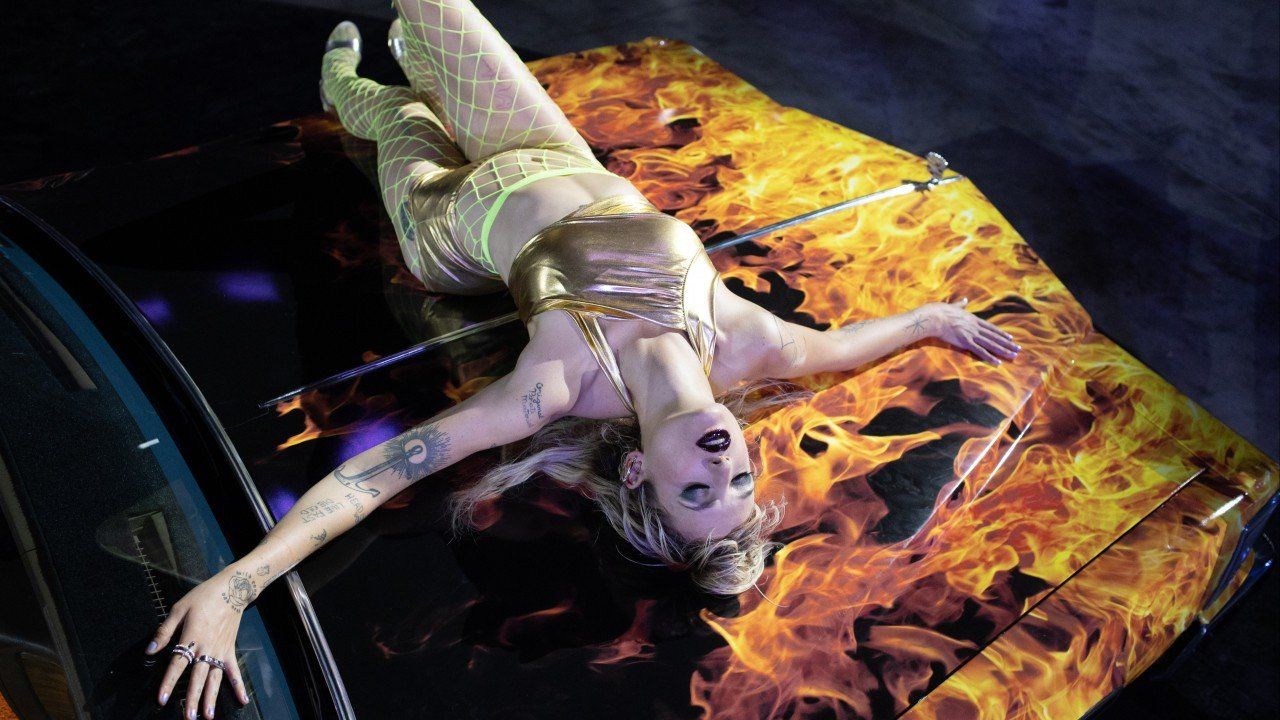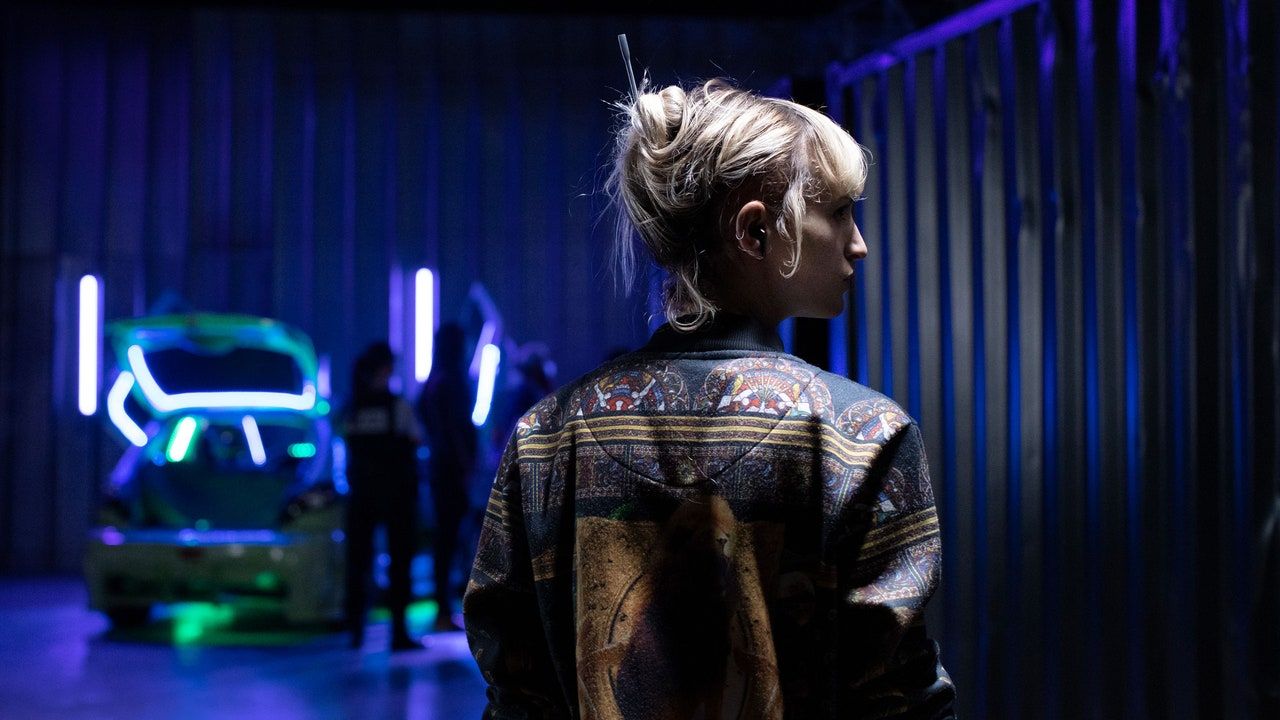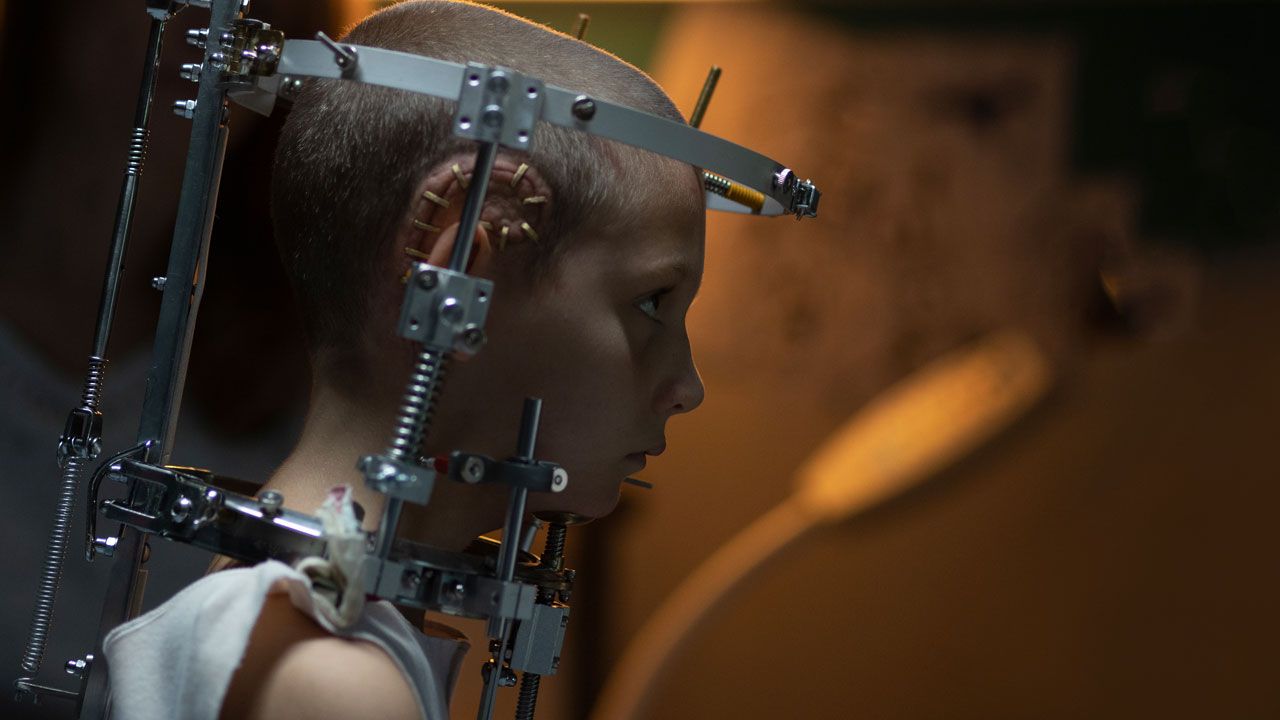Titane is the latest movie from the New French Extremity film movement (Martyrs, Inside), and it is not only extreme but also incredibly strange, unlike anything people had seen in 2021. Watching the film is a unique experience, and everything from the acting to the soundtrack is raw, fresh, intense, and brutal. It's a continuation and transcendence of Julia Ducournau's style, whose debut, Raw, attracted a lot of attention in the horror community and gained a strong word-of-mouth following. Titane goes above and beyond, however, and these are the five reasons why it was the weirdest, craziest film of 2021.
Spoilers below.
A Bonkers Plot
The plot is highly unusual. Alexia (Agathe Rouselle) is injured as a child and has a titanium plate put into her head.The titanium plate is always visible and, as she grows up, it seems to exert some type of influence on her mind and body. Fast-forward a couple of decades, and she is a car model of sorts, performing extremely sexual dance moves on top of cars at auto shows. After one of these, she stabs a creepy autograph seeker to death in a deserted parking lot.
Viewers become privy to the fact that she's essentially a serial killer; Alexia arbitrarily locks her father in his bedroom one night, and then lights their house on fire and walks away. The police have recently given up on a ten-year hunt for a missing child named Adrien, and Alexia sees a newly released, age-adjusted picture of the missing boy as he would look in the present; he could almost look like her. She is struck with an idea. She shaves her head, smashes her nose until it is broken, then tapes up her breasts and growing belly so that she can appear to others as a male. She claims to be the missing Adrien, and she is “re-united” with her “father,” a steroid-using (both characters are involved in body modification) fire captain, played by Vincent Lindon.He sees her briefly and confirms she is his son, denying the opportunity to have her take a DNA test. Deep inside, Vincent knows Alexia is not his child, but he doesn't say anything, accepting this imposter as his son, even after seeing her nude and learning the truth. The result is an incredibly strange and heartbreaking relationship between two damaged people, a man in search of his son and a woman in search of some type of parental love.
Vehicular Pregnancy
Alexia gets pregnant during the film, after having sex with her car. That is not a misprint. There is a sex scene with her and the car, and it is utterly wild. The movie explicitly links cars, sex, and violence in ways which queer typical masculine symbols but also disturbingly considers the fetishization of technology and machinery in an almost psychologically perverse way. The way Alexia dances on the car makes it seem like she is trying to seduce and make love with it. Always visible is her titanium scar from the car accident. Throughout Titane, her pregnancy accelerates, and it appears that she gives birth mere weeks after the car impregnated her. She is in horrible pain and unsuccessfully tries to abort the baby with her hairpin that she had used to murder people, at one point ripping a hole in her stomach.
Alexia goes through a bizarre physical transformation when pregnant that would have shocked body horror director David Cronenberg (who also made a film about sex, death, fetishes, and cars in his infamous adaption of J G Ballard's novel Crash). Somehow, possibly because of her car accident as a child (which is a metaphor for many things in itself, including dehumanization), her pregnancy had made her become part titanium, dripping black blood and with an enormous horrific unknown thing growing rapidly in her belly. In a way, the film reminds the viewer of Tetsuo, The Iron Man, another violent, visceral, and strange film involving the fusing of flesh and machine.
Monster Baby
When she starts giving birth (with her “father” performing the procedure at their home), her stomach splits open and reveals the gory mixture of metal and organs, her insides part flesh, part machine, containing a part-titanium baby. The child does live, and provides one bit of warped optimism in this otherwise bleak film. The "father" cradles the baby, not caring one bit that it's monstrous enough to rival the one from David Lynch’s Eraserhead. The happy new father holds up the baby with pride, promising to take care of it, as her mother bleeds out black blood on the bed and dies. The film (like Cronenberg, again) points toward transhumanism in this strange ending, which mixes the hope of new birth with the anxiety of just what exactly was born (in a way reminiscent of Rosemary's Baby). Titane embraces a kind of dark, magical fantasy in its conclusion.
Homoeroticism and the Queering of Masculine Tropes
There are extremely unique, sexually-charged homoerotic scenes in the film involving Vincent and the troop of firefighters that he commands. They take off their shirts, and they all seem to be bodybuilders. They thrash around, slam-dancing, engaging in rough physical activity with each other. However, when Alexia, as Adrien, does an extremely charged sexual striptease dance for them, they all seem to get mad and confused, as if their sexuality has been challenged by a "man" who has gone "too far" in assimilating feminine sexuality into "his" striptease. They think that they are watching a man dance for them, and they are simultaneously turned on and unclear about their sexuality, not knowing that they are watching a transgender female. Agathe Rouselle gives an amazingly uninhibited performance in this scene, especially when one compares it to the earlier car dance in terms of character psychology and thematic content. Rouselle manages to be sensual but violent during the film, locating intense hostility and muted, vulnerable tenderness in different places throughout the fluid, non-binary portrayal. In one memorable scene, she sucks her lover’s nipple before brutally biting down and almost tearing the nipple ring off, making it clear that she is a sexually sadistic, horrific psychopath.
The Mass Murder Scene is Epically Horrific and Hilarious
The film contains a grisly mass murder sequence that is actually somewhat funny, in a dark and twisted way. Before her transformation, Alexia meets a woman, and they go back to her house for sex; Alexia may crave the physical intimacy, but it quickly seems as if she's only there because she's a blood-thirsty serial killer. She immediately starts stabbing her date to death, when a roommate suddenly walks in. She finishes her kill and then goes after the roommate, and then discovers yet another roommate. Exasperated, she asks how many more people live at the house, before brutally, clumsily killing them all. The scene is both graphically vicious and shockingly hilarious, somehow both over-the-top and extremely naturalistic.
Thus, Titane is many things. A film about a serial killer. A film about family dysfunction. A film about finding someone to love when you are lost and mourning. An art-house film about a woman who becomes one with the titanium in her head. An experimental, queer masterpiece. There's no better evidence for this than the fact that the film is listed on three MovieWeb top 10 lists of 2021-- the Best Horror, Best Sci-Fi & Fantasy, and Best LGBTQ+ Movies. Whatever Titane is, one thing's for sure-- it was certainly the most innovative, original, and strange film of 2021, and everyone is wondering what Julia Ducournau’s next film will be like. With two impressive films under her belt, hers is a name to watch.




